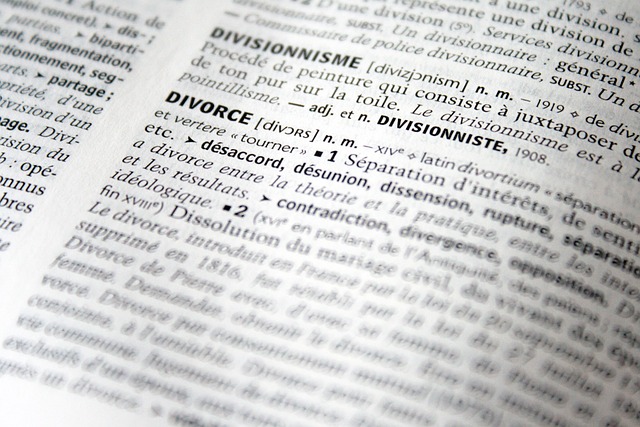The Settlement Process for Employment Law Cases involves avoiding costly litigation through mediation and arbitration, guided by skilled professionals in litigation support services who navigate legal complexities. These services streamline the process with expert guidance on valuation, risk assessment, and data analysis, benefiting employees and employers. Efficient settlement negotiations rely on thorough preparation, open communication, and strategic tactics. Advanced technologies like document indexing, electronic discovery, and data analytics further enhance efficiency, leading to swift resolutions including complete case dismissals.
In the intricate landscape of employment law, disputes can be complex and costly. Herein lies the significance of Litigation Support Services, designed to streamline these processes. This article navigates the critical aspects, from comprehending employment law disputes to employing effective settlement negotiations strategies. We explore how document management serves as a cornerstone of success and analyze technology’s transformative impact on case resolution, offering insights into the settlement process for employment law cases.
- Understanding Employment Law Disputes
- The Role of Litigation Support Services
- Efficient Settlement Negotiations Strategies
- Document Management: A Cornerstone of Success
- Technology's Impact on Case Resolution
Understanding Employment Law Disputes

Employment law disputes cover a range of issues, from discrimination and harassment to wrongful termination and breach of contract. Understanding these complexities is vital for both employees and employers alike. The settlement process for employment law cases involves careful navigation through legal procedures, often requiring mediation or arbitration to reach an amicable resolution. This process seeks to avoid lengthy and costly litigation, which can be detrimental to all parties involved, especially small businesses and respective business owners across the country.
By initiating dialogue and exploring alternative dispute resolution methods, both parties can work towards a mutually agreeable outcome. Skilled professionals in litigation support services play a crucial role here, guiding clients through the legal maze and advocating for their rights while prioritizing cost-effective solutions. This approach ensures that employees receive fair compensation or vindication of their rights, while employers can mitigate potential liabilities and move forward with their operations smoothly.
The Role of Litigation Support Services

Litigation Support Services play a pivotal role in legal proceedings, especially in employment law cases, by streamlining the settlement process. These services are designed to assist both plaintiffs and defendants in navigating complex legal landscapes efficiently. They offer expert guidance on valuation, risk assessment, and potential outcomes, enabling informed decisions that can lead to faster resolutions.
In employment law, where disputes often involve intricate details of contracts, policies, and regulations, Litigation Support Services provide crucial insights into the settlement Process for Employment Law Cases. By analyzing relevant data, they help identify patterns, trends, and precedents that can significantly influence the outcome. This not only facilitates a smoother negotiation process but also ensures that both parties are making well-informed choices, taking into account the broader implications for their respective businesses and the philanthropic and political communities.
Efficient Settlement Negotiations Strategies

Efficient Settlement Negotiations Strategies play a pivotal role in the settlement process for employment law cases. By employing tactical approaches, legal professionals can navigate complex negotiations and achieve favorable outcomes for their clients. One key strategy involves thorough preparation, where extensive research on case precedents and relevant laws equips lawyers with strong arguments. This preparation enables them to present compelling offers or counter-offers, ultimately guiding the settlement towards a mutually beneficial agreement.
Moreover, maintaining open communication throughout the process is essential. Lawyers should foster an environment of transparency, encouraging dialogue between all parties involved. This approach not only facilitates understanding but also paves the way for creative solutions. By recognizing the interests and concerns of each party—including the respective business’s objectives—lawyers can tailor their strategies to winning challenging defense verdicts while ensuring fairness and satisfaction for all stakeholders.
Document Management: A Cornerstone of Success

Efficient document management is a cornerstone of success in any legal proceeding, especially for complex cases like employment law disputes that often involve extensive paperwork and evidence. In the context of the settlement process for employment law cases, a well-organized documentation system can significantly streamline the entire procedure. This ensures that all relevant facts, communications, contracts, and records are easily accessible, accurately tracked, and securely stored.
Litigation support services play a vital role here, providing specialized tools and expertise to manage this mountain of information. They employ advanced technologies for document indexing, retrieval, and analysis, enabling legal teams to navigate through vast data efficiently. This meticulous approach not only facilitates the settlement process but also strengthens the respective business’s position by demonstrating a thorough understanding of the case details, potentially leading to a complete dismissal of all charges in white-collar defense scenarios.
Technology's Impact on Case Resolution

In today’s digital era, technology has revolutionized the litigation process for employment law cases, enabling more efficient case management and resolution. From electronic document discovery to advanced data analytics, these tools significantly enhance the speed and accuracy of information gathering. This not only streamlines the settlement process for employment law cases but also empowers both corporate and individual clients to navigate legal complexities with greater clarity.
The impact is particularly notable in the realm of evidence presentation. Digital platforms allow for easy access and organization of voluminous documents, facilitating a more comprehensive review and analysis. Moreover, advanced algorithms can identify patterns and connections within data, providing insights that may have been previously overlooked. This level of sophistication in litigation support services contributes to a complete dismissal of all charges in many cases, reflecting the broader trend towards more efficient and effective legal processes.
Litigation Support Services play a pivotal role in navigating the complex settlement process for employment law cases. By leveraging efficient strategies, robust document management, and embracing technology, legal professionals can streamline dispute resolution. Understanding employment law disputes and utilizing these services enhances the chances of reaching favorable outcomes, ensuring a more seamless experience for all involved parties.






